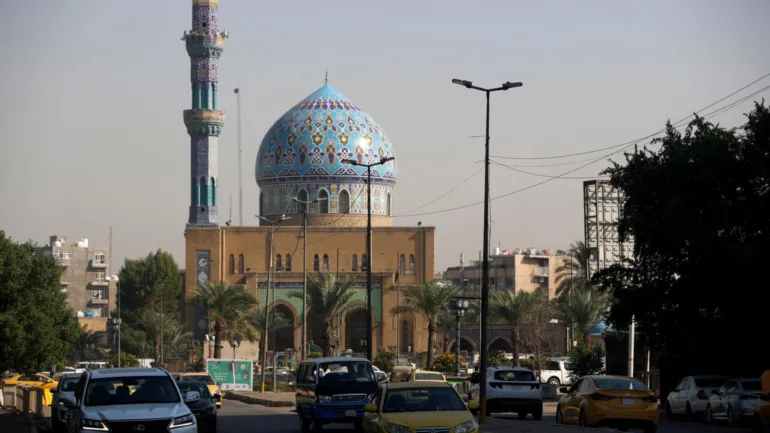Iraq is conducting its first nationwide census in nearly four decades this week, a much-anticipated count in a country long divided by sectarian and ethnic tensions.
Scheduled for Wednesday and Thursday, the census will provide crucial, up-to-date demographic data for Iraq, which has an estimated population of 44 million. It will be the first to include all 18 governorates since the last census in 1987, during the regime of Saddam Hussein, following numerous delays caused by years of conflict and political divisions.
“This census will have broad implications, especially for parliamentary representation,” said Hamzeh Hadad, a visiting fellow at the European Council on Foreign Relations (ECFR). “With one seat allocated per 100,000 Iraqis, the census will necessitate adjustments in parliamentary seats based on the updated demographic data.”
The 1997 census, the most recent nationwide count, excluded the three northern provinces of the autonomous Kurdistan region, fueling tensions between Baghdad and the Kurdish government over disputed territories in the north.
While the census will include religious affiliations, it will not differentiate between sects such as Sunni and Shiite Muslims, and, unlike previous counts, will exclude ethnicity. “Some critical details are missing in this census to avoid exacerbating tensions and to allow it to proceed,” Hadad added.
The Iraqi government is eager to conduct the census for its budgetary needs. Prime Minister Mohammed Shia al-Sudani emphasized its importance for planning and development, citing Iraq’s challenges in electricity supply and infrastructure.
– Two-day curfew –
During the census, a two-day curfew will be imposed, requiring families to remain at home while 120,000 enumerators collect data directly from households. The questionnaire will cover a wide range of topics, including household size, health status, education level, employment, car ownership, and even household appliances, providing a snapshot of living standards across the country.
Iraq has been mired in conflict and instability for much of the past few decades, including the 2003 US-led invasion, the sectarian violence that followed, and the rise of ISIS in 2014. Demographics are expected to have shifted significantly, with the displacement of hundreds of thousands of Christians and Yazidis, particularly from areas like Sinjar, once controlled by ISIS.
Despite ongoing violence and political turmoil, Iraq has experienced a degree of stability in recent years. In collaboration with the United Nations Population Fund (UNFPA), Iraqi authorities are aiming to use the census data to inform policymaking and foster inclusive development.
“This census will allow us to diagnose the problems that hinder progress in health, education, and housing,” said Abdel-Zahra al-Hindawi, spokesman for the Ministry of Planning. “It will reveal the reality of Iraq in its smallest details.”
– Demographic shifts –
Previous censuses were canceled due to disputes over territories between Kurdish, Arab, and Turkoman communities, particularly in the northern governorates of Kirkuk and Nineveh. Tensions persist over these disputed areas, with ongoing concerns about demographic changes resulting from Saddam Hussein’s Arabization policies and the subsequent Kurdish efforts to solidify control after 2003.
Fahmi Burhane, an official from the Kurdistan region overseeing the disputed territories, expressed concerns about a shift in the demographic makeup of areas like Kirkuk. “The number of Kurds has been gradually decreasing in these regions, particularly in areas like Kirkuk where Arabs were resettled under Saddam Hussein,” he said.
The census will only count families that were present in disputed territories during the 1957 census, in an effort to preserve the demographic balance and prevent new migration from distorting the results. Newcomers will be counted in their provinces of origin.
Burhane acknowledged that the Iraqi government had taken steps to alleviate concerns from the Kurdish community regarding the census process.
The results of this long-delayed census are expected to provide a clearer picture of Iraq’s current demographic and help shape its future development.
AFP


